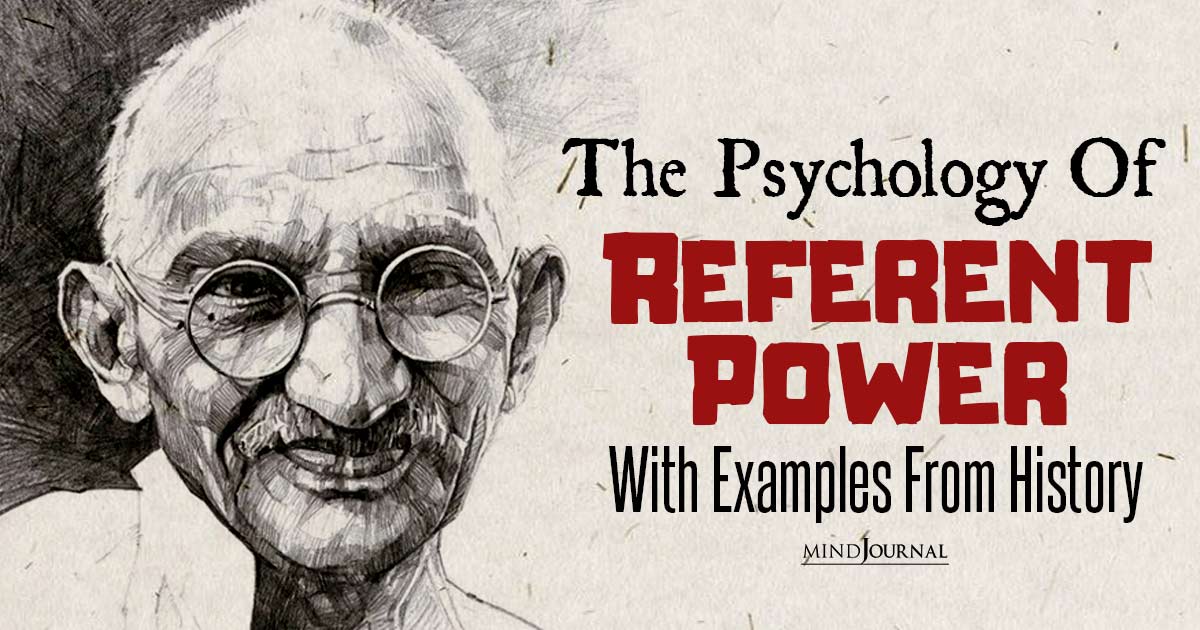Have you ever wondered why certain individuals have a remarkable ability to inspire and motivate others? What makes them so influential and respected? The answer lies in a concept known as referent power. Let’s explore referent power meaning, and its significance in leadership and the workplace to illustrate its impact.
What is Referent Power?
Referent power meaning: Referent power is a form of influence that stems from an individual’s likability, charisma, and personal connection with others.
Referent power is a type of power that is based on being liked, respected, and admired by others. It is based on the idea that people are naturally drawn to those they admire, respect, and wish to emulate.
It is a form of influence that arises from positive interpersonal relationships and can be a valuable asset in leadership and social interactions.
When someone possesses referent power, their opinions and actions hold significant weight, and they can sway others’ behavior without relying on formal authority or rewards.
Related: The Dark Side of Transformational Leadership: Hubristic Syndrome
Understanding Referent Power Meaning
Referent power is one of the five types of power identified by social psychologists John French and Bertram Raven in their influential work on power and leadership. It refers to a person’s ability to influence others because they are liked, respected, admired, or seen as a role model.
This power is based on the positive feelings and perceptions that others have toward the individual who possesses it.
Here are some key aspects of referent power:
1. Basis of Influence
Referent power is derived from the interpersonal relationships and connections a person has with others. It is not based on position or authority but rather on personal qualities and characteristics.
2. Likeability
People who possess referent power are often seen as likable, friendly, and approachable. They are able to establish strong rapport and connections with others because they are genuinely liked and trusted.
3. Respect and Admiration
Those with referent power are respected and admired by others, not necessarily because of their accomplishments or expertise, but because of their personal qualities and values.
4. Role Models
People with referent power are often seen as role models. Others look up to them and aspire to be more like them, both in terms of their behavior and values.
5. Influence Mechanisms
Referent power can be used to influence others in various ways. When someone respects and admires another person, they are more likely to be influenced by their suggestions, opinions, and requests.
6. Leadership
Referent power is often associated with effective leadership. Leaders who are well-liked and admired by their team members are more likely to motivate and inspire them to achieve common goals.
7. Limitations
While referent power can be a potent form of influence, it also has limitations. It may not be as effective in situations where there are significant differences in values or where the person with referent power lacks expertise in a particular area.
8. Ethical Considerations
As per referent power meaning, it can be used for both ethical and unethical purposes. Ethical leaders use their referent power to promote positive and beneficial outcomes, while unethical individuals may manipulate the trust and admiration of others for personal gain.
Referent Power in Leadership
In the realm of leadership, referent power plays a vital role in inspiring and mobilizing teams towards a shared vision. Leaders who possess referent power are seen as role models and earn the trust and loyalty of their followers.
They have the ability to influence the attitudes, beliefs, and behaviors of their team members, fostering a sense of unity and commitment.
One key characteristic of referent power in leadership is authenticity. Authentic leaders are genuine in their actions and intentions, and this sincerity resonates with others.
By consistently displaying integrity, empathy, and transparency, they create an environment where individuals feel safe and motivated to contribute their best.
Moreover, leaders with referent power tend to be exceptional communicators. They possess the ability to articulate their vision with clarity, passion, and conviction, inspiring others to believe in and align themselves with the goals at hand.
Through effective communication, they build strong relationships, encourage collaboration, and create a positive organizational culture.
Related: 10 Common Leadership Myths And How To Overcome Them
Referent Power in the Workplace
Referent power extends beyond leadership roles and has a significant impact on interpersonal relationships in the workplace. Colleagues who possess referent power are often seen as trusted advisors and influential figures within their teams. Others seek their guidance, value their opinions, and are more likely to support their initiatives.
In the workplace, referent power is built upon qualities such as expertise, experience, and a willingness to help others succeed. When individuals consistently demonstrate their competence and expertise, they become a source of inspiration and admiration for their peers.
This admiration, combined with the desire to learn and grow, creates an environment where knowledge-sharing and collaboration thrive.
Moreover, those with referent power in the workplace often display exceptional interpersonal skills. They actively listen, show empathy, and provide support to their colleagues, fostering a positive and inclusive work culture.
By building strong rapport and trust, they become influential figures who can motivate and guide their peers towards collective success.
Referent Power Real Life Example
To better understand the concept of referent power meaning, let’s explore a few relatable referent power example:
1. Historical Leaders
Mahatma Gandhi, known for his nonviolent approach to resistance, wielded immense referent power. His unwavering principles, humility, and dedication to justice inspired millions to follow his path.
2. Celebrity Influencers
Influential figures in the entertainment industry, such as Oprah Winfrey or Elon Musk, possess substantial referent power. Their achievements, charisma, and ability to connect with global audiences have a profound impact on public opinion and consumer behavior.
3. Team Leaders
Within a project team, a leader who demonstrates competence, empathy, and a strong work ethic can influence team members to go the extra mile. Their referent power stems from their ability to inspire and create a sense of unity within the group.
4. Mentors
Mentors who guide and support their mentees through their expertise and personal example possess referent power. They inspire their mentees to develop their skills, overcome challenges, and reach their full potential.
Takeaway
Referent power is a remarkable force that allows individuals to influence and inspire others through their likability, charisma, and personal connection. Whether it’s in leadership or the workplace, individuals who understand referent power meaning, and know how to use it, have the ability to shape behaviors, build trust, and foster collaboration.
By cultivating authenticity, effective communication, and strong relationships, we can all unlock our potential to become influential figures who positively impact those around us.
Related: How To Develop Leadership Skills
Frequently Asked Questions (FAQs):
Who has referent power?
Individuals who are liked, respected, admired, or seen as role models possess referent power, influencing others through positive perceptions.
What is a referent power in leadership?
Referent power in leadership stems from being admired and respected, enabling leaders to influence and inspire followers through personal qualities.
What types of power is referent?
Referent power is a type of social power, based on being liked, respected, and admired, and it influences through personal qualities.










Leave a Reply